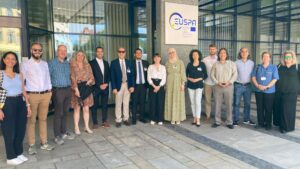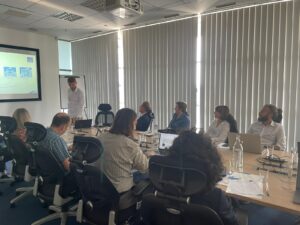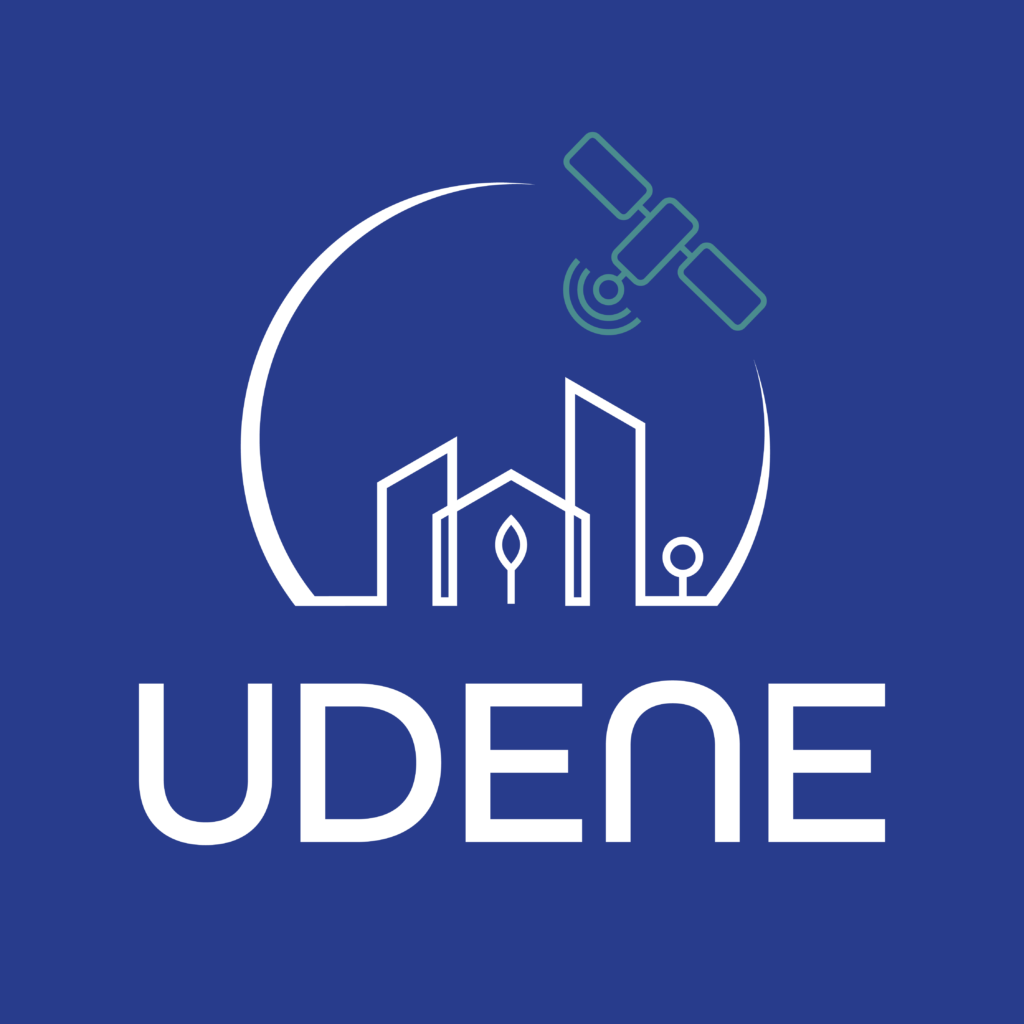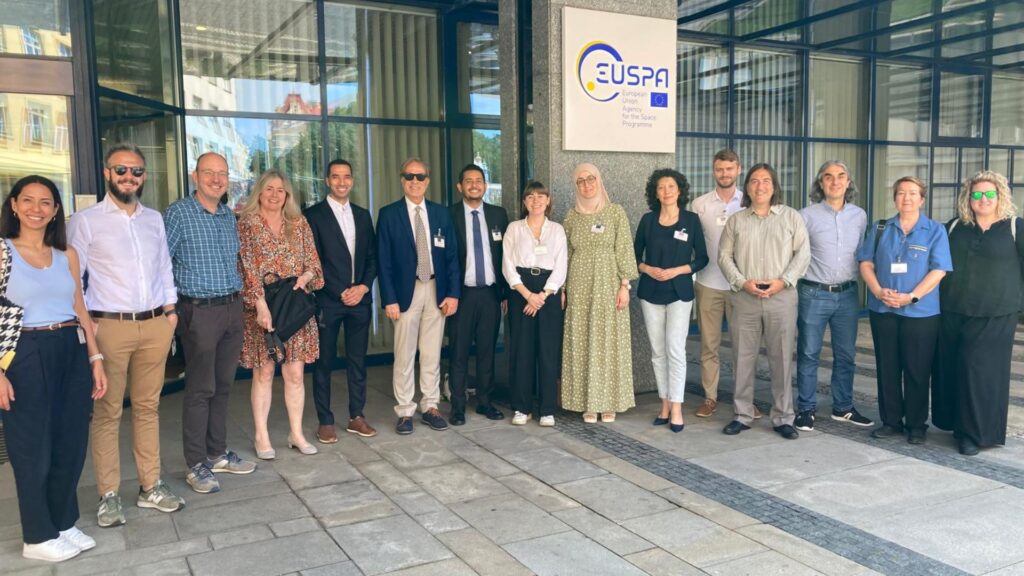Six months after the kick-off meeting that took place in Ankara (read here), project partners met at the European Union Agency for the Space Programme (EUSPA) HQ in Prague (Czech Republic).

Concluding the sixth month of the project, this meeting was organised to further exchanges on the strategic development of the project, and to deepen the conections between the project partners while strengthening collaboration with both the consortium partners and external parties. For this reason, Dr Gülin Dede, Space Segment Engineering Coordinator of the Copernicus Programme at the European Space Agency (ESA) and member of the UDENE Advisory Board, and the two reviewers of the project, Dr Arta Dilo, Senior Scientist at the Nedelandse Organisatie Voor Toegepast and Prof. Dr Tim Van de Voorde, Professor at Ghent University, were invited to take part in the discussions, and shared their valuable insights.
The discussions started with an introduction by InoSens on the contributions of international partner countries to the Copernicus programme, highlighting the areas where partner countries can provide valuable input to maximise the effectiveness and relevance of Copernicus services. For instance, international partner countries can contribute to maximising the benefits of the Copernicus programme by:
- enhancing data quality through providing high quality in-situ data to validate remote sensing data;
- furthering capacity building, especially by transferring knowledge exchange and skills;
- participating in policy advocacy and promoting best practices;
- supporting the development of new applications and services;
- providing new inputs and resources.
Within the framework of UDENE, smart urban planning will avoid misinformed and unfit decisions. As Earth Observation (EO) is expected to continue its growth in the coming years, UDENE has a significant role to play to support its expansion and especially in contributing to disaster risk management within international partner countries.
Building on the introduction, WEglobal and Eurisy showcased how international partner countries could benefit more from the Copernicus Programme and shared success stories of solutions based on Copernicus data and services. As the meeting took place in Prague, Eurisy showcased a video on the use of Copernicus to mitigate the effects of climate change at public transport stops in the city:
Concluding the first half of the meeting, use-cases partners NiK System (Türkiye), BioSense Institute (Serbia), and the Tunisian Space Association (Tunisia) exchanged on the challenges they encounter and on the benefits of a collaboration with EUSPA. A key point addressed during the discussions was the need for international partner countries to have access to more data to present to national entities and the need to establish robust contacts within international partner countries with the European EO ecosystem and Copernicus.
Before work package leaders presented the latest progresses made within the project, Dr Vasilis Kalogirou introduced the EU Space programme for the coming years as well as the activities led by EUSPA. Reaffirming the significance of the UDENE project and of its objectives, Mr. Kalogirou emphasized the objective of the Agency to internationalise the capabilities of the programme and to create a bridge between international partner countries and European EO capabilities.

The day was concluded by the presentation of the work carried out in the last three months of the project and on the next actions, under the attentive eyes of project’s reviewers and advisory board member. Benefiting from the expertise of Dr Gülin Dede, as well as of Dr Arta Dilo and Prof. Dr Tim Van de Voorde, UDENE partners gained valuable inputs on the strategic development of the project and are more than ready for the next phase of the project.

